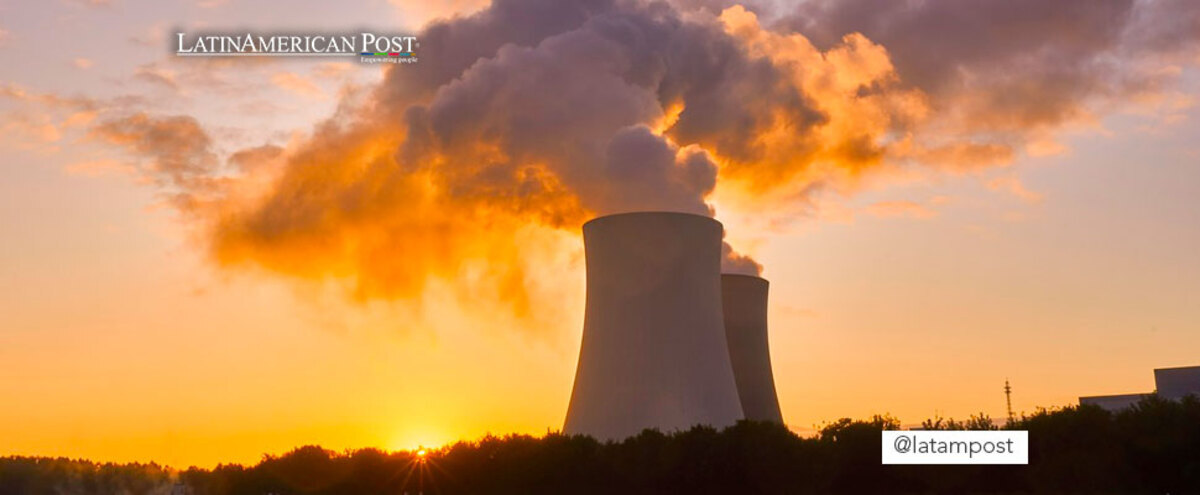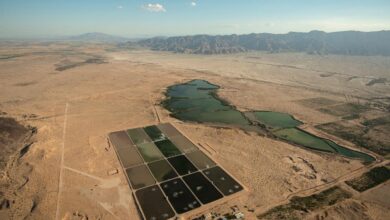Is Nuclear Energy An Environmental Alternative For Latin America? The Case Of Mexico
Nuclear energy is an alternative to clean energy generation that has potential for Latin America. Its implementation is being evaluated in various countries. We tell you about the case of Mexico.

Photo: Pixabay
LatinAmerican Post | Jorge Francisco Vuelvas Lomeli
Escucha este artículo
Leer en español: ¿Es la energía nuclear una alternativa medioambiental para Latinoamérica? El caso de México
The world is facing a climate crisis and, at the same time, an energy crisis in many regions. As a result, short- and long-term solutions to reduce greenhouse gas emissions are at the center of the global agenda. As Latin American countries search for energy alternatives that are less harmful to the environment, nuclear power is emerging as a viable option. Therefore, here we will examine the use and impact of nuclear energy in the region, emphasizing the case of Mexico.
What is nuclear energy?
Nuclear power is one of the most efficient and clean alternatives to produce electricity on a large scale. Nuclear fission is the process by which this energy is obtained. It is achieved when the nuclei of atoms split, releasing a significant amount of energy in the form of heat, which is used to produce steam and generate electricity.
However, like all technology, nuclear power presents some risks. Nuclear accidents and radioactive waste management are some of the challenges facing the nuclear industry. In addition, nuclear energy can also be used to develop nuclear weapons. Despite these risks, nuclear power is considered one of the safest and most reliable options for large-scale electricity production. Modern nuclear reactors have security measures and advanced technologies to minimize risks and ensure the safety of people and the environment.
Use of nuclear energy in Mexico
The use of nuclear energy in Mexico has been controversial, but the National Electric System (SEN) estimates that it could have a greater impact on the country's electricity generation. Currently, the Laguna Verde Nuclear Power Plant, located in Veracruz, provides 3.39% of the electrical energy required by the country, but it only operates at 78% of its capacity. However, the SEN specifies that if it worked at 100% of its capacity it could be producing 4.35%, but if two more units were also installed, its capacity would exceed 8%.
In addition, the possibility of building a new nuclear plant in the state of Baja California Sur has been mentioned. This would help reduce the use of fossil fuels and increase the country's energy security, thus alleviating the burning of natural gas that currently provides 60% of the electrical energy generated in the country. It is important to consider that in other countries with nuclear power plants, such as the United States, Germany, and Spain, nuclear energy contributes more than 20%, while in France it reaches 80%.
We recommend you read: Global risks: "The failure of climate change will be the worst risk in the long term"
Environmental impact: benefits and risks
Although this type of energy is a clean source, it has some negative effects on the environment. For example, nuclear fuel contains radioactive materials that can release toxic substances into the water, air, and soil. In addition, used nuclear fuel can also be a potential source of contamination if stored incorrectly. On the other hand, the construction of nuclear plants can have an impact on the landscape and cause the destruction of habitat and the loss of biodiversity.
Despite the environmental risks associated with nuclear power, there are also many benefits. For example, it is a clean and efficient source of energy that does not produce greenhouse gas emissions, essential to achieve climate neutrality. Furthermore, it is a stable and reliable power source that is less vulnerable to outages compared to solar and wind power sources.
Finally, nuclear power is a relatively cheap energy option and can help reduce the dependence of Latin American countries on fossil fuels. However, there are some risks associated with nuclear power. For example, used nuclear fuel and radioactive waste can be a threat to human health if not stored properly. Furthermore, any nuclear accident can have catastrophic consequences for the environment. These risks mean that Latin American countries, should they decide to bet on this type of energy, must take measures to guarantee safety, transparency, and responsibility in the operation of their nuclear plants.
Viable alternative?
In summary, nuclear energy can be a viable alternative for Latin American countries seeking to reduce their dependence on fossil fuels, without the need to resort to protectionist measures on hydrocarbons. If done safely and responsibly, it can contribute to energy security and provide clean energy to the region. In the case of Mexico, if you want to take advantage of the benefits of nuclear energy, you must develop strict regulation and security measures, in addition to promoting greater transparency in the sector. Nuclear power could be an environmental alternative if done responsibly, generating economic growth and promoting energy security.





